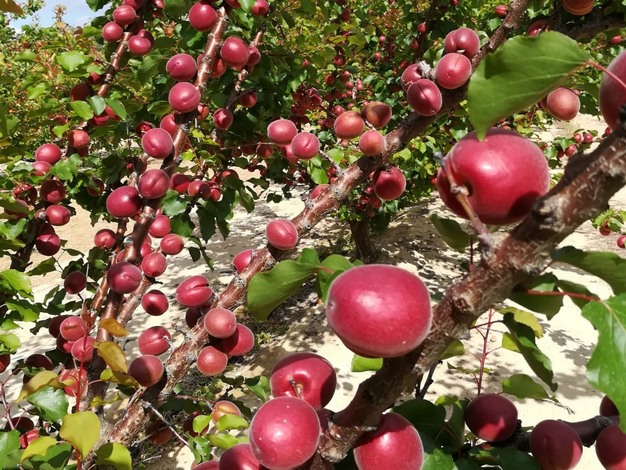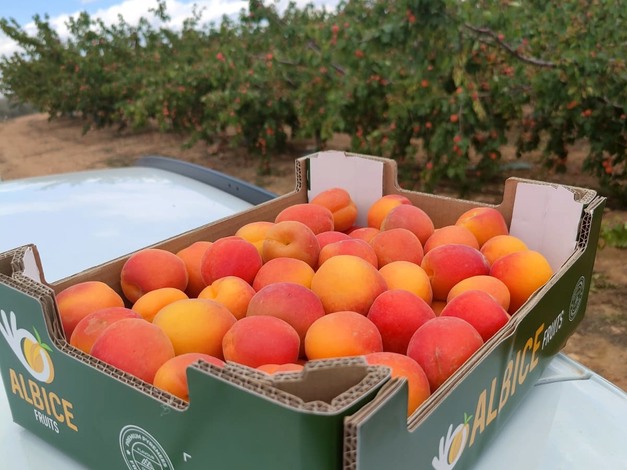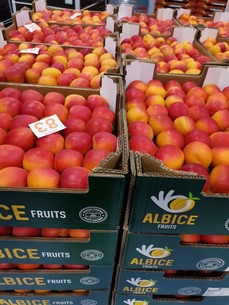The apricot season will come to an early end in Spain this year. "The season is practically over," says Fabián Nicolás, of Albice Fruits. "At Albice, we are currently harvesting the last batches of the last of our varieties: the Farlís. Other years, the harvest could be extended until the last week of August, but the weather caused the fruit to arrive earlier, bringing forward the start, and we are already finishing on August 17."

"At this point, there is very little apricot left in the fields, but there is still enough demand, so we are finishing the season with good prices." However, Fabián points out that this has not been the case throughout the entire campaign, which has had two very distinct parts.
"The first thing to remember is that there has been a shortage of laborers in the field. We have really struggled to carry out the harvests, which were brought forward by more than a week due to the heat. In fact, varieties that should have started to be harvested on June 1 were already being harvested on May 20-22. Thus, in the first part of the season, from May 25-26 to June 15, there was an excess of fruit, which resulted in lower prices. During that time, we also had difficulties for their handling in the packing plants due to labor shortages."
"As of June 20-25, when the stocks in storage chambers were cleared and the supply decreased, prices returned to acceptable levels. It has been smooth sailing from that point onwards."

"We all have our place in the market".
Only official figures can confirm it, but forecasts for 2023 clearly point to a recovery of the apricot volumes, following the strong declines of 2022 (it should be recalled that the domestic harvest fell by 28% compared to 2021, and by 38% compared to the average of the last 5 years, due to the severe impact of frost in general, and particularly of the rains and haze in the Region of Murcia). There should also be a recovery of exports, and it is worth remembering that Spain is the world's largest exporter of fresh apricots, according to FAOSTAT data.

"This year, Albice Fruits is going to produce similar volumes to those we reached in previous years, and we are exporting to destinations all over Europe. Our most important market at the beginning of the season is France, although our strategy is to reduce our volumes as soon as there starts to be national production. Prices drop considerably at that time in the French market because large retailers in the country prefer French apricots to Spanish apricots. Therefore, at that time we drastically stop exporting to the French market and we switch to Germany, Belgium, the United Kingdom, Switzerland, the Netherlands, Poland, etc."
"However, this does not happen only in France. There are many countries in Europe with lesser known apricot productions, such as Austria, Switzerland or Hungary. In those countries, 80-90% of the production goes to the domestic market, and when their harvests start, they consume their domestic products and exports drop, and only when their production drops do we resume working with them. The fruit chain works like that, but it is important to remember that there is a place for all of us in the market."
 For more information:
For more information:
Albice Fruits
Pol. Ind. Riols, Parc. 16
50170 Mequinenza, Zaragoza (España)
info@albicefruits.com
https://albicefruits.com
